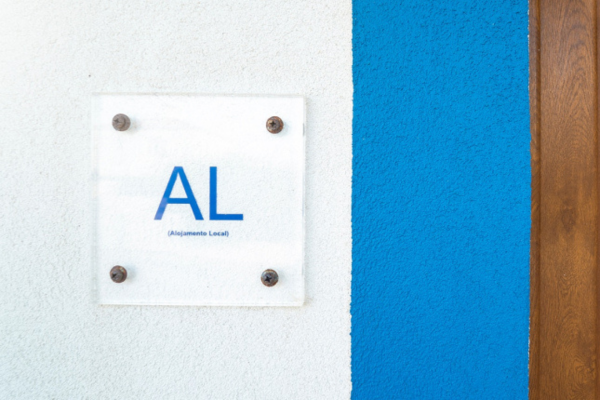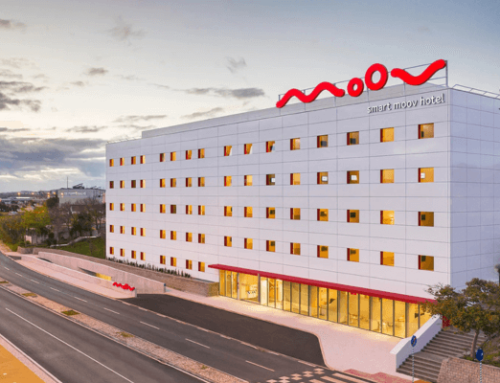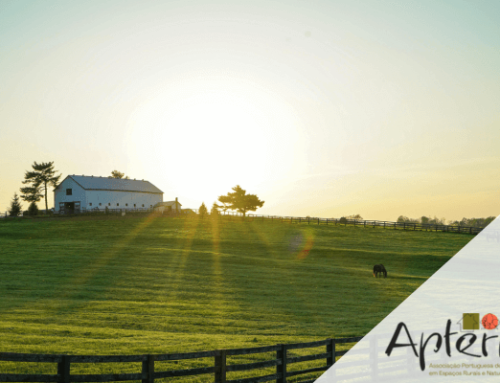
Controversial for some, profitable for entrepreneurs and, above all, for the growth of tourism in Portugal, local accommodation is an excellent way to monetise a property and turn it into a permanent source of income.
If you're thinking of opening your local accommodation but don't know how, follow the guide we've prepared especially for you.
What is Local Accommodation?
According to Portuguese legislation, a local accommodation (LA) is a business that provides services,
"temporary accommodation services, particularly for tourists, for a fee, provided that it does not fulfil the requirements to be considered a tourist resort"
Despite telling us that a property can be transformed into LA, the legislation also defines the types and limits of occupation that local accommodation must respect in order to be considered as such.
Types of Local Accommodation
In legal terms, you can set up your local accommodation in flats, houses, rooms or lodging establishments.
However, the number of rooms it will make available to holidaymakers cannot exceed nine and there can never be more than 30 guests in its AL at any one time.
You will also have to respect the rule that the total number of users cannot exceed twice the number of rooms available.
There is, however, the possibility of increasing the number of guests in your AL by accommodating them in the living room (maximum of two people) and installing extra beds (maximum of two) for children up to the age of 12.
If you are thinking of operating more than nine flats in the same building, don't do it, as this practice is prohibited if it exceeds 75% of the total number of units in the building.
What do I need to open a Local Accommodation?
To open local accommodation, you obviously need to own a property that can be converted into LA and that is in an area where it is allowed to exist.
In this regard, check with the town hall in the area where the property is located whether it can accommodate this type of development.
After this requirement, you'll have to worry about registering your local accommodation:
Registration: what does it take to register a Local Accommodation business?
To register local accommodation, the first thing you need to do is go to the One-Stop Shop and make a prior announcement.
At the same time, you must open a tax office (at a physical counter or on the Tax Authority's website) by choosing one of the three available CAEs for local accommodation:
- 55201 (Furnished tourist accommodation)
- 55202 (Rural tourism)
- 55204 (Other short-term accommodation).
It should be emphasised that registration is compulsory and whenever it concerns an autonomous fraction of a building in horizontal ownership intended for habitation, it must always be preceded by the agreement of all the condominium owners.
As we've mentioned, registration must be accompanied by prior notification, via the Single Electronic Counter, which must be addressed to the mayor of the area where the LA is to be set up.
This prior notification must be accompanied by the following documents:
- Copy of the owner of the accommodation (natural person) or access code to the permanent certificate of the commercial register (legal person);
- Statement of responsibility from the owner regarding the suitability of the building or autonomous fraction;
- Copy of the property's urban land registry;
- Copy of the rental agreement with authorisation to provide local accommodation services (if the property is rented);
- Copy of the declaration of commencement or change of activity submitted to the AT;
- Minutes of authorisation issued by the condominium meeting;
- Proof of the type of establishment you are going to develop within the scope of the LA activity.
Each application will then be assigned the local accommodation establishment's registration number which, for practical purposes, will be the only valid title for opening the establishment to the public and publicising it.
It should be emphasised that this registration is valid for five years. After five years, the registration can be renewed for a further five years and so on, provided that the town hall does not object.
Payment methods: which ones are best?
Once you've registered and packed the necessary things (beds, sofas, sheets, towels, etc.), it's time to worry about how you're going to receive payments from your guests.
At this point, it's important to bear in mind that the means of payment contactless are the most sought after by consumers and that, if you have a website and accept bookings over the internet, you will have to be prepared to accept online payments.
In addition, as you will be receiving foreign tourists, it is important that the face-to-face means of payment, the POS, are prepared to realise transactions in the home currency the tourist.
In the case of contactless payments, try to equip your AL with a Physical TPA such as REDUNIQ Smart which, as well as allowing you to accept contactless payments with chip cards, MB WAY, Google Pay and Apple Pay, comes with a set of management apps that will help your business become more mobile and digital.
Among the apps that this terminal can accommodate are Tax Free App (saves time and resources in the entire purchase and VAT refund process) and the App Parcela Já which, in practice, allows your customers to pay in instalments, interest-free.
Flexibility and concern for the guest's well-being are not limited to these two applications.
In addition to Tax Free and Parcela Já, the REDUNIQ Smart POS is also equipped with the following functionality DCC - Currency Conversion which recognises the currency of origin of your customer's card (Visa or Mastercard) and, if the payment is eligible for DCC, then displays the invoice amount in the guest's currency of origin and in euros, as well as the respective exchange rate.
At this point, it will be up to the customer to decide in which currency they prefer the transaction to be made.
When it comes to online payments, REDUNIQ offers the following solutions REDUNIQ E-Commerce e REDUNIQ@Payments.
In practice,
- REDUNIQ E-Commerce will allow you to receive e-commerce payments with Visa and Mastercard debit and credit cards from customers all over the world, with no membership costs or monthly fees, thus guaranteeing you frictionless checkout processes and a higher sales rate.
- the turnkey REDUNIQ@Payments solution will give you the chance to publicise and receive payment for your bookings without having to set up a website. This is because this solution allows you to receive payments online via email, SMS or WhatsApp, by ATM reference, MB WAY and Visa and Mastercard, without having to worry about membership costs, fixed costs, monthly fees or integration.
Advertising: how to promote your LA business?
Before and during the operation of your LA, it is important that you pay special attention to promoting your local accommodation.
The simplest, quickest and cheapest way to do this is by using online platforms such as the well-known Booking or Homeaway.
Although these platforms have a very wide reach and can earn you many bookings, it should be emphasised that you will have to pay the platform a commission in order to take advantage of their services.
In addition to this, make good use of social media, i.e. create content that is relevant to your target audience, if possible using so-called "influencers". Remember, a "freebie" from an influencer with thousands of followers can earn you an excellent online reputation and, consequently, more customers.
Tip: If you place your AL on an online hosting platform, identify it with the registration number.


